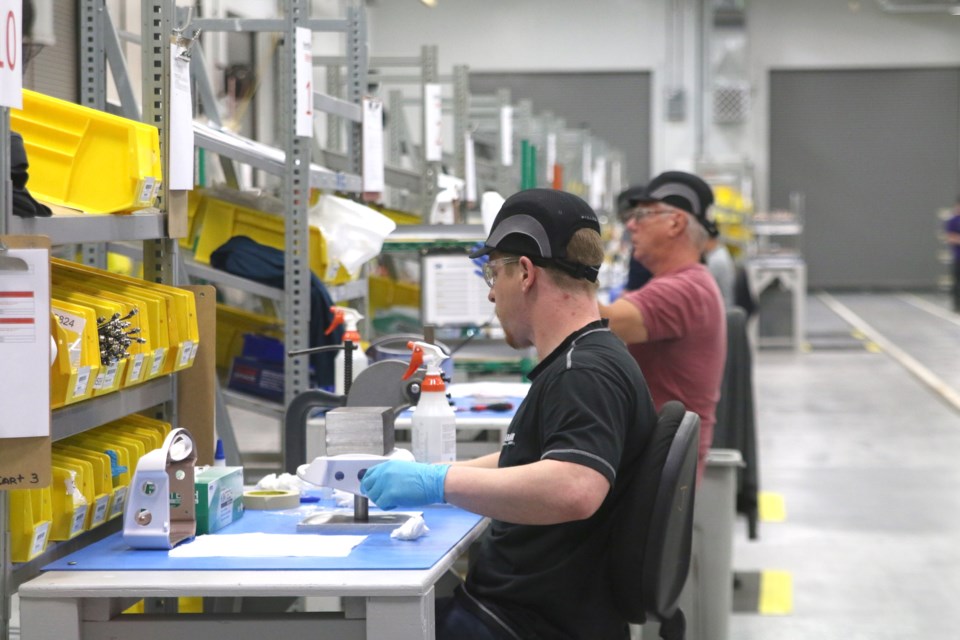THUNDER BAY - The Bombardier plant in Thunder Bay has had a varied history from manufacturing aircraft and vessels to aid in war efforts, to expanding public transportation, and now helping to breathe life back into an ailing nation.
This week the local plant began work on manufacturing ventilator components for the Southern Ontario-based company O-Two Medical Industries to help in the fight against COVID-19.
“Throughout the years of plant manufacturing, we’ve built buses, we’ve built planes, we’ve built minesweepers,” said Dominic Pasqualino, president of Unifor Local 1075.
“This is the smallest item we’ve ever made. I think it is the most important thing. It is giving people their very breath back that they need. This is probably one of the most life-saving things we’ve ever built here and we are very happy to be able to do it.”
Plans to manufacture electrical and internal components for ventilators began in April and Bombardier general manager in Thunder Bay, Dave Black, said several steps had to be taken to prepare the local operation to begin work.
“It’s been fairly smooth. The staff here is very adaptable,” he said. “We do changes all the time here. We’ve had to take an existing infrastructure and turn it into a room to build medical supplies. The room was bonding panels to an LRV. We had to revamp that into making medical supplies.”
The components will be sent to O-Two Medical for final assembly and testing. Black said for the next two weeks the plant is expected to manufacture 500 units, with that number expanding to 1,000 per week into the summer.
“It’s amazing we can turn into something this small, as equally as important as anything else, and start making it,” he said. “It’s a real tribute to the team here. They work really hard and are really motivated. It really shows the enthusiasm of the team here.”
Both Black and Pasqualino said Thunder Bay-Rainy River MP, Marcus Powlowski, played a key role in getting this plan off the ground during the early stages of the COVID-19 pandemic in Canada.
“Ventilators have been a concern right from the beginning,” Powlowski said. “That has been one of the biggest concerns.”
Powlowski pointed to other parts of the world, such as Northern Italy, which struggled with a shortage of ventilators when it was hit by an outbreak of COVID-19.
“Thankfully we haven’t got to that stage,” he said. “However, this is only the second inning of a game that we don’t know how many innings there are. Hopefully we are not going to run out of ventilators. I think we’re not going to run out of ventilators because we are mass-producing them here in Canada.”
Canada has not seen the same surge in hospitals as other parts of other world and Powlowski said we have not surpassed our capacity for ventilators. But the fight against COVID-19 is far from over.
“We are early on in this,” he said. “We are certainly a long way from herd immunity. There are predictions of a second wave and concerns the second wave will be worse than the first wave.”
And while the ventilators being manufactured in Thunder Bay will aid hospitals across the country, and around the world, it is also a benefit to employees at the local plant who have faced hardships last year with more than 500 people laid off.
“The added benefit is it is calling people back,” Pasqualino said. “When people left in December they thought that they weren’t going to be back for a very long time, to be able to come back relatively soon, especially when the whole world seems to be shutting down, to come back and help with this ventilator thing is excellent.”
“As soon as people got wind that there was a ventilator project, I get steady phone calls throughout the day. People are really enthusiastic to be able to build it. This is a piece of history and we are really excited to go and work on the ventilators.”
